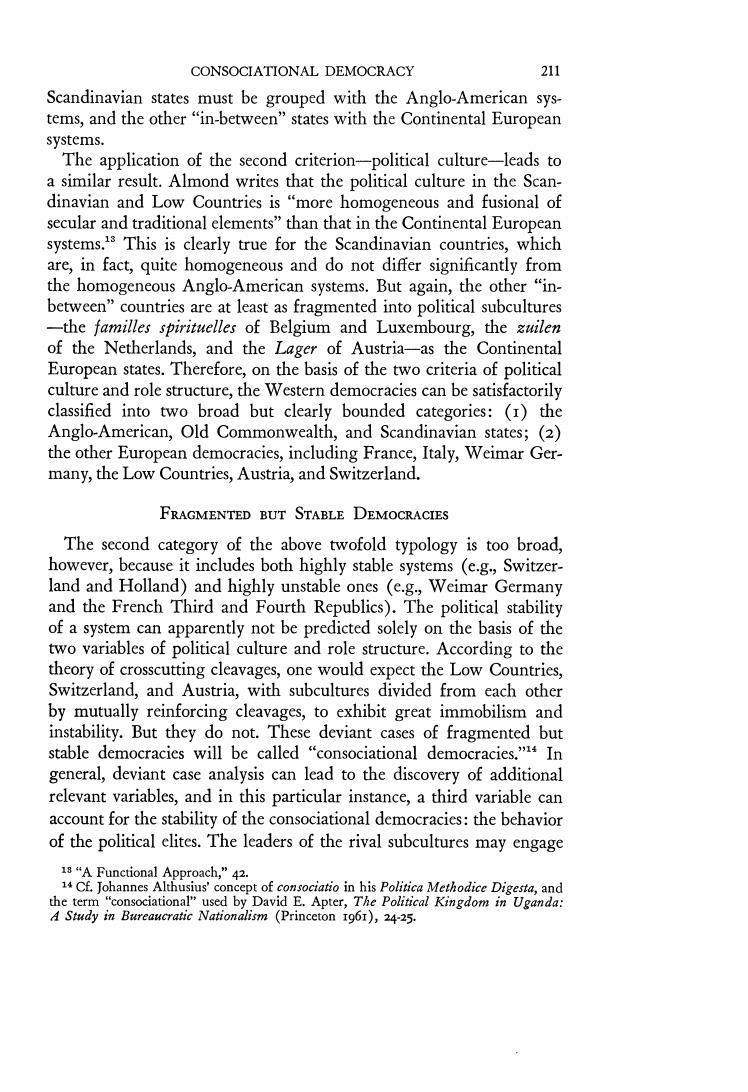正在加载图片...

CONSOCIATIONAL DEMOCRACY 211 Scandinavian states must be grouped with the Anglo-American sys- tems,and the other"in-between"states with the Continental European systems. The application of the second criterion-political culture-leads to a similar result.Almond writes that the political culture in the Scan- dinavian and Low Countries is "more homogeneous and fusional of secular and traditional elements"than that in the Continental European systems.This is clearly true for the Scandinavian countries,which are,in fact,quite homogeneous and do not differ significantly from the homogeneous Anglo-American systems.But again,the other "in- between"countries are at least as fragmented into political subcultures -the familles spirituelles of Belgium and Luxembourg,the zuilen of the Netherlands,and the Lager of Austria-as the Continental European states.Therefore,on the basis of the two criteria of political culture and role structure,the Western democracies can be satisfactorily classified into two broad but clearly bounded categories:(I)the Anglo-American,Old Commonwealth,and Scandinavian states;(2) the other European democracies,including France,Italy,Weimar Ger- many,the Low Countries,Austria,and Switzerland. FRAGMENTED BUT STABLE DEMOCRACIES The second category of the above twofold typology is too broad, however,because it includes both highly stable systems (e.g,Switzer- land and Holland)and highly unstable ones (e.g,Weimar Germany and the French Third and Fourth Republics).The political stability of a system can apparently not be predicted solely on the basis of the two variables of political culture and role structure.According to the theory of crosscutting cleavages,one would expect the Low Countries, Switzerland,and Austria,with subcultures divided from each other by mutually reinforcing cleavages,to exhibit great immobilism and instability.But they do not.These deviant cases of fragmented but stable democracies will be called "consociational democracies."In general,deviant case analysis can lead to the discovery of additional relevant variables,and in this particular instance,a third variable can account for the stability of the consociational democracies:the behavior of the political elites.The leaders of the rival subcultures may engage 18“A Functional Approach,”42. 14 Cf.Johannes Althusius'concept of consociatio in his Politica Methodice Digesta,and the term "consociational"used by David E.Apter,The Political Kingdom in Uganda: A Study in Bureaucratic Nationalism (Princeton 1961),24-25